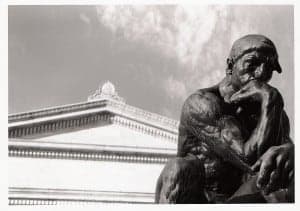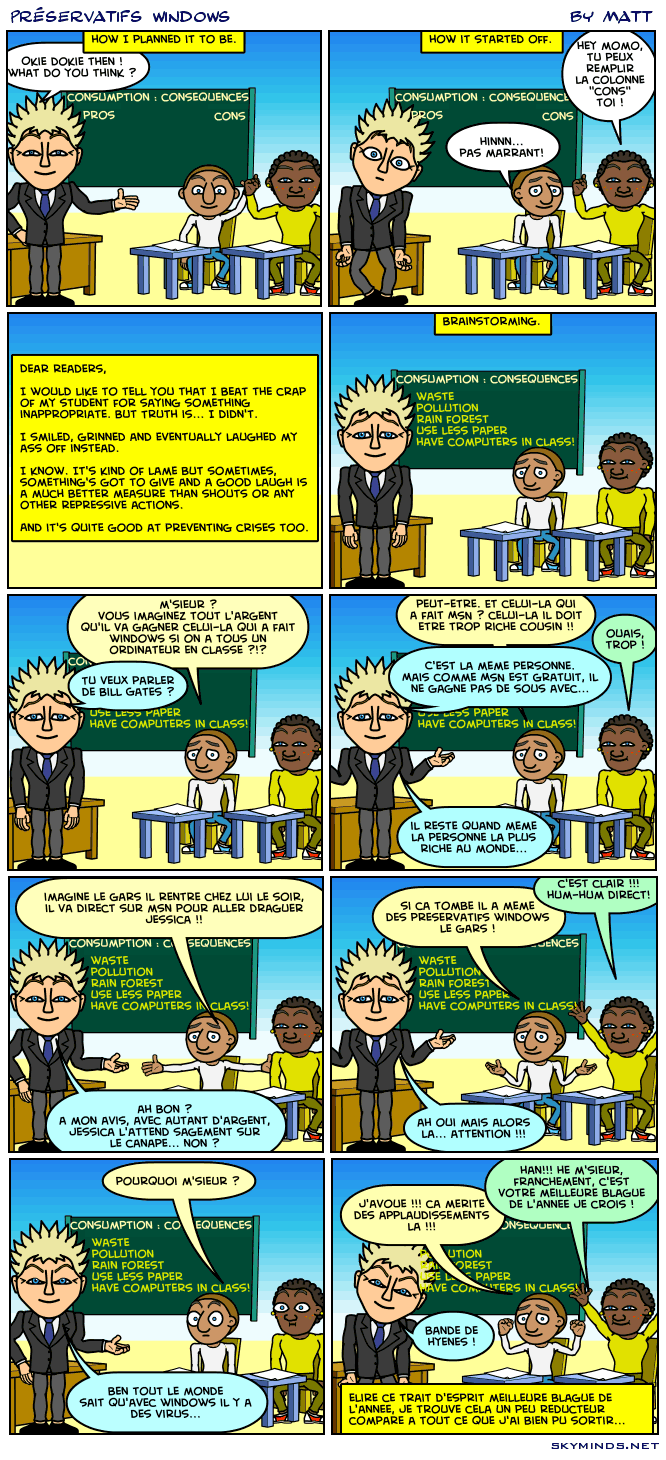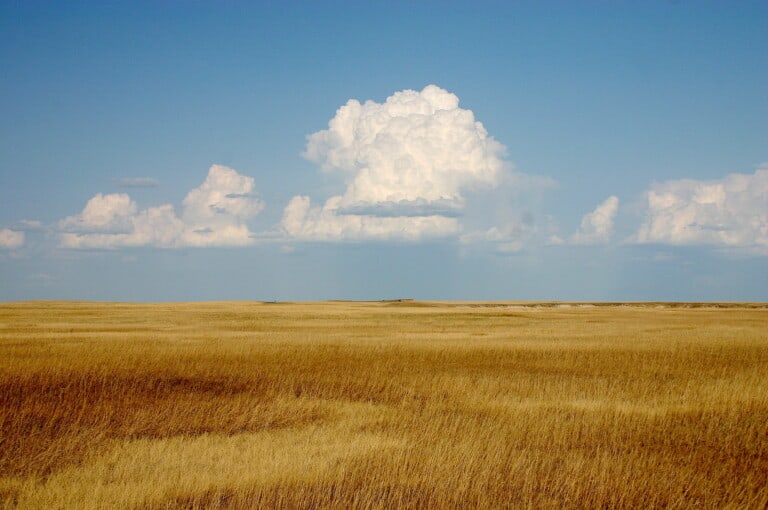1. I can see your point, but I still think you’re full of shit.
2. I don’t know what your problem is, but I’ll bet it’s hard to pronounce.
3. How about never? Is never good for you?
4. I see you’ve set aside this special time to humiliate yourself in public.
5. I’m really easy to get along with once you people learn to see it my way.
6. I’ll try being nicer if you’ll try being smarter.
7. I’m out of my mind, but feel free to leave a message…
8. I don’t work here. I’m a consultant.
9. It sounds like English, but I can’t understand a word you’re saying.
10. Ahhh… I see the screw-up fairy has visited us again…
11. I like you. You remind me of when I was young and stupid.
12. You are validating my inherent mistrust of strangers.
13. I have plenty of talent and vision. I just don’t give a damn.
14. I’m already visualizing the duct tape over your mouth.
15. I will always cherish the initial misconceptions I had about you.
16. Thank you. We’re all refreshed and challenged by your unique point of view.
17. The fact that no one understands you doesn’t mean you’re an artist.
18. Any connection between your reality and mine is purely coincidental.
19. What am I? Flypaper for freaks!?
20. I’m not being rude. You’re just insignificant.
21. It’s a thankless job, but I’ve got a lot of Karma to burn off.
22. Yes, I am an agent of Satan, but my duties are largely ceremonial.
23. And your crybaby whiny-butt opinion would be…?
24. Do I look like a people person?
25. This isn’t an office. It’s Hell with fluorescent lighting.
26. I started out with nothing & still have most of it left.
27. Sarcasm is just one more service we offer.
28. If I throw a stick, will you leave?
29. Errors have been made. Others will be blamed.
30. Whatever kind of look you were going for, you missed.
31. I’m trying to imagine you with a personality.
32. A cubicle is just a padded cell without a door.
33. Can I trade this job for what’s behind door #1?
34. Too many freaks, not enough circuses.
35. Nice perfume. Must you marinate in it?
36. Chaos, panic and disorder – my work here is done.
37. How do I set a laser printer to stun?
38. I thought I wanted a career, turns out I just wanted paychecks.
39. I’m really easy to get along with once you people learn to worship me.
40. You assign me one more action item and I’m going to show you why I play with those WWF figurines…
41. Who me? I just wander from room to room.
42. Does your train of thought have a caboose?
43. Imagine this; I will win and you will lose. Do we need to go on?
44. I see that this is the collection point for the freaks and weirdoes.
45. You! Off my planet!
46. The less you bother me, the sooner we’ll get results.
47. Of course I don’t look busy…I did it right the first time!
48. Who says nothing is impossible. I’ve been doing nothing for years.
49. The world is full of willing people. Some willing to work, the rest willing to let them.
50. You can have it right or you can have it now, but you can’t have it right now.



